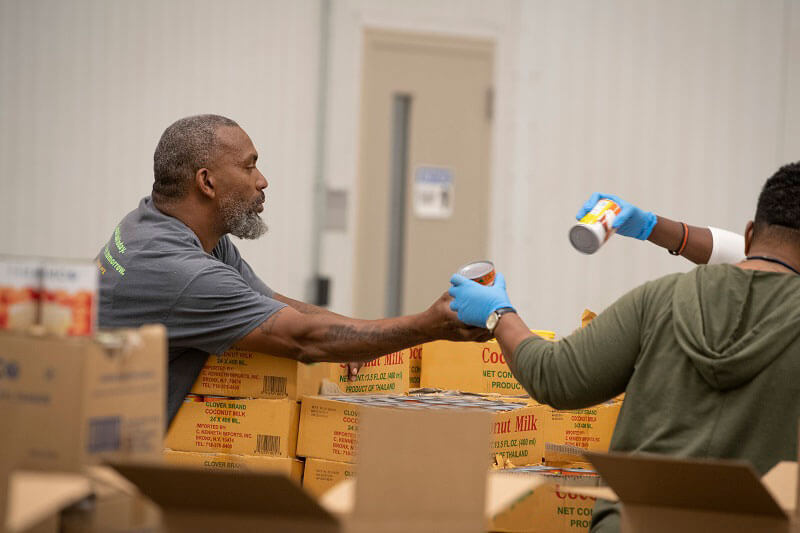Because They Matter
Please join us in our battle against food waste and hunger. With your help we can significantly improve the lives of those in need by developing a more sustainable future.
If we all do a little, we can change a lot
The Problem of Food Waste & Hunger
Globally, food waste and food insecurity are pressing issues that are deeply intertwined. Approximately 1/3 of all food produced globally is wasted or lost. This is equivalent to 1.3 billion tons per year. All while approximately 690 million people ( almost 9% of the world’s population) suffer from hunger and food insecurity. Food waste not only contributes to the problem of food insecurity, but it also has severe environmental consequences. There is an abundance of resources used to grow, transport, and produce food that end up in landfills which contributes to 8% of greenhouse gas emissions, as it decomposes and releases methane gas.


Our Solution
We are working with local communities and partnering with organizations to ensure that immediate needs are met by means of fresh food distribution. In addition, we focus on a long-term solution by recovering excess food from restaurants and other organizations and transforming it into wholesome and shelf-stable freeze-dried meals for people who are experiencing food insecurity. This allows us to simultaneously reduce food waste while providing a sustainable solution to those suffering from food insecurity. By promoting emergency readiness, United Provisions ensures that communities are better equipped to face future crises, fostering a more resilient and environmentally responsible society.
Mission and Goals
Fighting Hunger
Our mission is to fight hunger and food insecurity by obtaining excess food and distributing it to those in need. We believe that no one should have to go hungry in a world where we produce enough food to feed everyone.
Sustainability
We are committed to reducing food waste and promoting sustainability. By obtaining excess food that would otherwise go to waste, we are not only feeding those in need but also conserving valuable resources, while reducing additional landfill.
Reduces Carbon Emissions
By diverting food waste, we are actively reducing greenhouse gas emissions. Food waste rotting in landfills is the United States third most significant source of methane emissions at 17%. Methane is the primary contributor to the formation of ground-level ozone, a hazardous air pollutant and greenhouse gas, exposure to which causes 1 million premature deaths every year.
Innovation
We constantly seek new and innovative ways to fight hunger and food waste. Whether by developing new technologies or partnering with local organizations to create new programs, we are committed to finding new solutions to these pressing issues.
Collaboration
Collaboration is the key to creating a world without hunger and food waste. We work closely with other organizations, government agencies, and businesses to develop a network of support that can make a real difference in the lives of those in need.
Self-sufficiency
Educating and equipping individuals and communities with the skills and resources necessary to be self-sufficient during times of crisis is vital to survival; this includes providing information on creating emergency supply kits and having a plan in place for food and water access during emergencies - empowering individuals to take control of their food security for the future.
